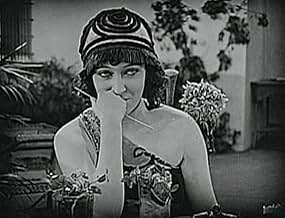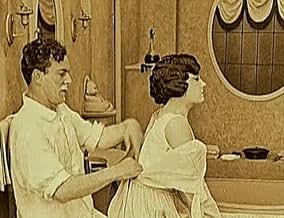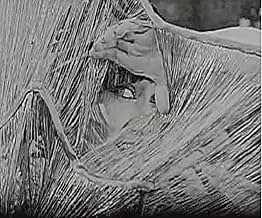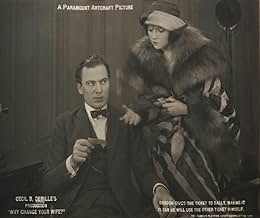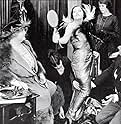Today Cecil B. DeMille is probably best known for the overwrought (if thoroughly enjoyable) biblical epic "The Ten Commandments." But during the silent era he made several sophisticated comedies portraying the battle of the sexes such as "Why Change Your Wife," an engaging mixture of bizarre, over the top glamour (the negligee the husband buys his wife is so elaborately constructed I couldn't blame her for looking dismayed when she first saw it) and dead on day-to-day detail about married lifeis there a couple who hasn't gotten in each other's way and on each other's nerves when sharing a bathroom? Gloria Swanson plays Beth Gordon, a young wife who cannot resist the temptation to improve her husband, scorning his fox trot records for something called "The Dying Poet." She loses him to the proverbial shop girl, Sally Clarkhilariously played by Bebe Danielsa character so vulgar she owns a gyrating Kewpie Doll. (This film's frank endorsement of consumerism has often been remarked on, but it rightly acknowledges that what we chose to buy tells as much about our class and character as anything else). The husband soon realizes that he made a mistake, clearly finding Sally's baby talk even more tiresome than Beth's high minded nagging, but it isn't until Beth transforms herself into a sexy knockout wearing the height of pre-flapper fashion that the two reunite.
The movie isn't entirely cynical about romanceit is never really in doubt that Beth and her husband love each otherbut it is shrewd enough to recognize that in holding the attention of your partner a little glamour and sophistication doesn't hurt (the husband isn't let off the hook though, and his naiveté in expecting the honeymoon phase to last forever is mocked in a bathroom scene when Sally repeatedly interrupts his attempts to shave just as Beth did earlier).
A side note: All the leading players are engaging, but the violinist (played by Theodore Kosloff) who seduces women by making love to their souls steals every scene he is in.
To sum up, this worldly comedy challenges the common assumption that silent film is little more than slapstick or melodrama.



